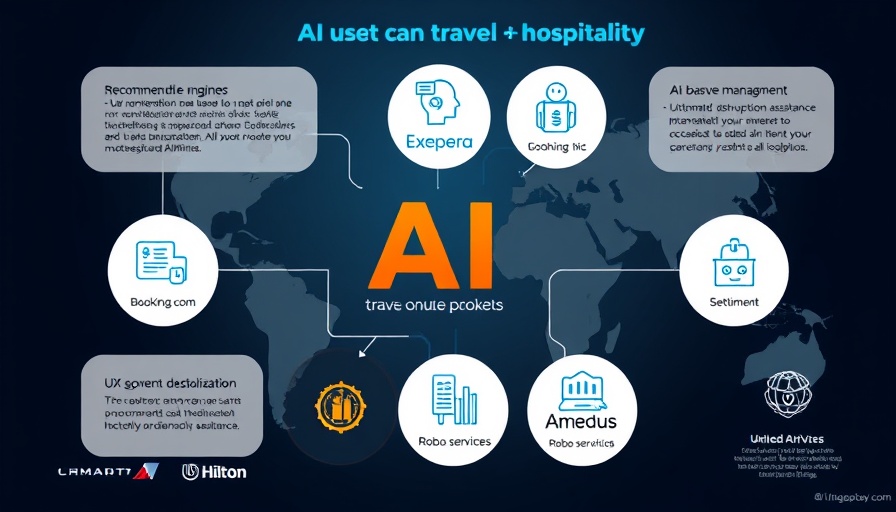
The Rise of AI in Travel and Hospitality
We stand on the brink of a new era in the travel and hospitality industry, one defined by artificial intelligence (AI) and data-driven marketing strategies. As technology evolves, businesses are rethinking their approach, using AI tools to enhance customer engagement and streamline operations. From chatbots to personalized recommendations, AI is transforming the customer journey in meaningful ways.
Why Businesses Should Embrace AI
The benefits of integrating AI into travel and hospitality are profound. For professionals and business owners, AI tools can optimize marketing efforts by analyzing consumer behavior and predicting trends. This is especially relevant for the digital marketing landscape, where staying ahead of social media marketing trends, SEO updates, and content marketing strategies is essential for success.
With programs capable of automating traditional marketing processes, businesses can enhance efficiency. Chatbots, for instance, enable 24/7 customer support, providing immediate responses to inquiries and freeing human resources for more complex tasks. As a result, operational efficiencies improve, leading to increased customer satisfaction and higher rates of retention.
The Impact of AI on Customer Engagement Strategies
AI's role in engagement extends beyond automation. By leveraging advanced analytics, businesses can create more precise customer profiles and tailor marketing strategies to individual preferences. This allows for more effective content distribution and allows travel companies to offer personalized travel packages, thereby enhancing customer experience.
Moreover, as digital marketing tools continue to evolve, it’s crucial for companies to adapt. Incorporating AI-driven insights opens the door to refined customer journey mapping, enabling businesses to predict user needs and improve overall engagement strategies.
A Parallel Example: The Transformation of E-commerce
Consider the e-commerce industry, where major brands have adopted AI technologies to enhance shopping experiences. Just as online retailers recommend products based on user behavior, the travel industry can adopt similar practices—be it personalized itinerary suggestions or tailored promotional offers. Aligning with digital marketing trends will be key for travel businesses looking to thrive in a competitive market.
Challenges to Consider
However, the integration of AI into travel and hospitality is not without challenges. Data privacy concerns present significant hurdles; marketers must navigate regulations like GDPR while effectively utilizing consumer data. Educational initiatives focused on ethical AI practices will also be critical for fostering trust among consumers.
Future Predictions: AI's Continued Evolution
As AI technology advances, its applications within travel and hospitality will expand. Future predictions indicate a shift towards even deeper personalization. For example, integrating AI into analytics and data reporting could provide insights that inform strategic decision-making, thus creating rich, engaging customer experiences.
As we look toward digital marketing trends in 2025 and beyond, embracing AI's potential will prove to be a game-changer for the travel and hospitality sector. The challenge for business owners and marketing teams will be how swiftly and effectively they adapt their strategies to harness AI's capabilities.
Actionable Insights: Embrace AI Today
For business owners and digital marketers in the travel and hospitality sector, the time to start integrating AI is now. Understanding how AI can enhance marketing automation, refine customer engagement strategies, and streamline operations could be the key to thriving in a rapidly changing landscape. Marketers must seek out training and resources on emerging tools to stay ahead.
Take charge of your digital transformation journey by exploring AI-driven digital marketing strategies and implementing innovative tools. The future of travel and hospitality is tech-driven; your business strategy should reflect that change.
 Add Row
Add Row  Add
Add 




Write A Comment